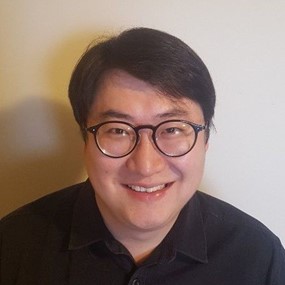In addition to the Asian Studies minor, we offer courses in the languages, cultures and literature of China, Japan and Korea.
To obtain the Asian Studies minor, you must complete a combination of language and interdisciplinary Asian culture courses. We offer tutoring and language partners to help you become fluent in the language you are studying.
Every year, Auburn University hosts many Asian cultural events, including dance performances, film screenings, language exchange programs, fashion shows, art shows, food tastings and lectures by scholars. Auburn University boasts a large Asian student population and is home to the Auburn King Sejong Institute and the Korea Corner.
The Asian Studies Minor
A minor in Asian Studies requires 15 credit hours from approved courses. At least 9 credit hours must be completed at Auburn University or through an Auburn approved study abroad program. You must earn a C and maintain a 2.5 grade-point average in all courses that count toward the minor.
Language Courses:
- Complete the one-year elementary sequence (1010 and 1020) in FLCN/FLJP/FLKN. First-year credit may be given to students who successfully complete the 2010 level.
- Choose one course from FLCN 2010/FLJP 2010/FLKN 2010, or equivalent.
Content Courses:
You must complete a minimum of 12 credit hours from the following list of courses. For more information, visit the Auburn Bulletin.
- FLAS 3450: Topics in Asian Culture
- FLCN 3010: Chinese Composition & Conversation
- FLCN 3020: Chinese Composition & Conversation II
- FLCN 3050: Chinese Cinema
- FLCN 3450: Topics in Chinese Culture & Literature
- FLCN 3510: Introduction to Chinese Culture
- FLCN 3650: Survey of Modern Chinese Literature
- FLCN 3750: Survey of Traditional Chinese Literature
- FLCN 3930: Directed Study in Chinese
- FLCN 5010/6010: Teaching Chinese as a Foreign Language
- FLJP 3010: Japanese Composition & Conversation
- FLJP 3050: Japanese Cinema
- FLJP 3450: Topics in Japanese Culture & Literature
- FLJP 3650: Survey of Modern Japanese Literature
- FLJP 3750: Survey of Traditional Japanese Literature
- FLJP 3930: Directed Study in Japanese
- FLKN 3010: Advanced Korean I
- FLKN 3020: Advanced Korean II
- FLKN 3150: Korean Proficiency through Popular Culture
- FLKN 3450: Topics in Korean Literature & Culture
- FLKN 3510: Intro to Korean Culture in English
- FLKN 4010: Oral Proficiency in Korean
- FLKN 4310: Korean for Career Professionals
- ANTH 2700: Peoples & Cultures of Asia
- ANTH 3000: Culture, Marriage & Family
- ARTS 3790: Arts of Asia
- HIST 2110: Survey of Asian History
- HIST 3970: Korean & Vietnam Wars
- HIST 5660: History of Modern China
- HIST 5670: History of Modern Japan
- HIST 5650: History of Modern South Asia
- IDSC 2000: Contemporary Korea
- PHIL 1060: Philosophy East & West
- POLI 3610: Asian Politics
- RELG 3330: Eastern Religions
Study Abroad, Exchange Programs and Internships
You can receive Auburn University credit for studying on the AU-FLL Summer Chinese Language, Culture and Internship Program in Shanghai, and on the exchange programs available through the College of Liberal Arts with Sejong University in South Korea and Nihon University in Japan. In addition, full scholarships are available for study in Taiwan at National Cheng Kung University. You can receive transfer credits for studying on various language and internship programs in China, Japan and Korea. See the CLA Abroad website for more details.
Scholarship Opportunities
Students minoring in Asian Studies are eligible to apply for three different types of departmental scholarships offered annually, which include the Castanoli Abroad, Castanoli Young Scholar and Wiatt Achievement scholarships. Details regarding these scholarships can be found on our scholarships webpage.
Non-minor students may also be eligible to apply for various scholarships, including:
- CLA Academic Enrichment Scholarship
- Critical Language Scholarship
- Benjamin A. Gillman International Scholarship
- Chinese Ministry of Education Scholarship
- MEXT Scholarship by the Japanese government
Career Opportunities
Alabama is home to a number of companies from Asia. Alabama and the United States' strong and growing economic ties with Asian countries provide abundant job opportunities for graduating students, locally and globally. The People’s Republic of China and Japan rank among the world’s top three largest economies and among Alabama’s top five export markets. In Alabama, Japan ranks #1 in the number of locally employed workers among all foreign-owned companies. An increasing number of South Korean companies located in the Southeast U.S. also offers numerous job opportunities.
Recent Accomplishments of Our Students
Students minoring in Asian Studies have:
- Received a Critical Language Scholarship for summer language training in Japan and Chinese
- Received a Ministry of Education Scholarship to study a year in China
- Been nominated as a Fulbright Scholar finalist to pursue a graduate degree in Japan
- Received awards at the annual Chinese Bridge Competition
- Been selected to be JET (Japan Exchange and Teaching) Program fellows sponsored by the Japanese government
- Accepted to graduate programs in Japanese archeology at Oxford University and Japanese humanities at Kyushu University, Japan
- Done graduate work in Asian International Affairs at the University of Hawaii
- Done graduate work at East China Normal University and Peking University in China
- Done graduate work in Teaching English to Speakers of Other Languages and taught English in China, Japan, the U.S. and other countries
- Interned for the U.S. Department of Defense
- Interned at some of the 60+ Korean companies in the state of Alabama
- Been offered an internship at the National Museum of Asian Art in Washington, D.C.
In addition, a number of our graduates work in professions including the U.S. military, film industry, landscape architecture, business, chemical engineering, robotics, psychology and English language education.
Asian Studies Faculty
- Dr. Carolyn Fitzgerald (Chinese)
- Dr. John Christopher Kern (Japanese)
- Dr. Hyongrae Kim (Korean)
- Dr. Tingting Wang (Chinese)



